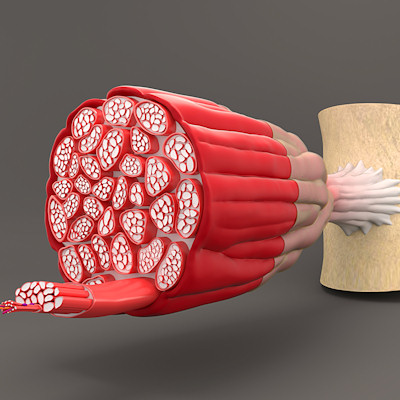 Can AI predict adverse events from new drug combinations?
Can AI predict adverse events from new drug combinations?
A new artificial intelligence (AI) model may be able to help clinicians predict if new combinations of drugs will produce side effects that are worse than their potential benefit, according to research presented at this week’s annual meeting of the American Association for Cancer Research. Read More
 CRISPR technique may lead to hypoallergenic cats
CRISPR technique may lead to hypoallergenic cats
Love cats but have allergies? Rejoice! Scientists have demonstrated that CRISPR gene editing of the cat allergen, Felis domesticus allergen I, could bring relief to those with cat allergies, according to a proof-of-concept study published online in the CRISPR Journal. Read More
 Biomedical innovations bring hope to patients with musculoskeletal diseases
Biomedical innovations bring hope to patients with musculoskeletal diseases
Geistlich Biomaterials Italia, Santhera Pharmaceuticals, and Sarepta Therapeutics have entered into a series of collaborations to develop innovative strategies for treating musculoskeletal diseases, ranging from gene therapy to regenerative medicine, according to a recent report in Cell and Gene Therapy Business Outlook, a sister publication of ScienceBoard. Read More
 Scientists sequence complete human genome for the 1st time
Scientists sequence complete human genome for the 1st time
A team of nearly 100 scientists from the Telomere-to-Telomere Consortium has for the first time unveiled the complete human genome. The findings were published on March 31 in the journal Science. Read More
 Gene therapy shows long-term benefits for children with WAS
Gene therapy shows long-term benefits for children with WAS
A lentiviral-based gene therapy treatment for children with Wiskott-Aldrich Syndrome (WAS) has demonstrated long-term benefits, according to research recently published in Nature Medicine. The findings demonstrate a safe alternative to the traditional treatment protocol. Read More
 Bacteria don invisibility cloak to fight cancer
Bacteria don invisibility cloak to fight cancer
Using bacteria to target tumors is a promising avenue for developing new treatments, although the risk of severe side effects is holding back clinical trials. Now, in a new study published on March 17 in Nature Biotechnology, researchers have developed a way to reversibly hide the microbes from the immune system, providing control over their growth. Read More
 Berkeley Lab offers CRAGE kit for genome engineering
Berkeley Lab offers CRAGE kit for genome engineering
Lawrence Berkeley National Laboratory (Berkeley Lab) is offering a trial kit for its chassis-independent, recombinase-assisted, genome engineering (CRAGE) tool. Read More
 Laser flashes: Next advancement for cancer radiotherapy
Laser flashes: Next advancement for cancer radiotherapy
Scientists have successfully tested the irradiation of tumors with laser protons in animal models for the first time, according to research published recently in the journal Nature Physics. The rapid irradiation method may prove to be a breakthrough in cancer therapy. Read More
 Part 3: How does HelaPlex equip students for success in the life sciences?
Part 3: How does HelaPlex equip students for success in the life sciences?
How can the life sciences industry improve inclusion and equity and encourage a more diverse workforce? One solution is HelaPlex, a workforce development program created by Tia Lyles-Williams, an emerging biotechnology entrepreneur and founder of three companies. Read More
 Advancing the development of biologics provides stronger clinical options
Advancing the development of biologics provides stronger clinical options
A therapeutic area that is gaining traction is the field of biologics. Such therapies are highly useful in treating diseases because they can mimic and complement naturally occurring physiological processes in the human body that may be key to treating the dysfunction. As a result, biologics are frequently used to treat immune-mediated and inflammatory disease states. Read More
Member Rewards
Earn points for contributing to market research. Redeem your points for merchandise, travel, or even to help your favorite charity.
Research Topics
Interact with an engaged, global community of your peers who come together to discuss their work and opportunities.
Connect
Tweets by @ScienceBoard



